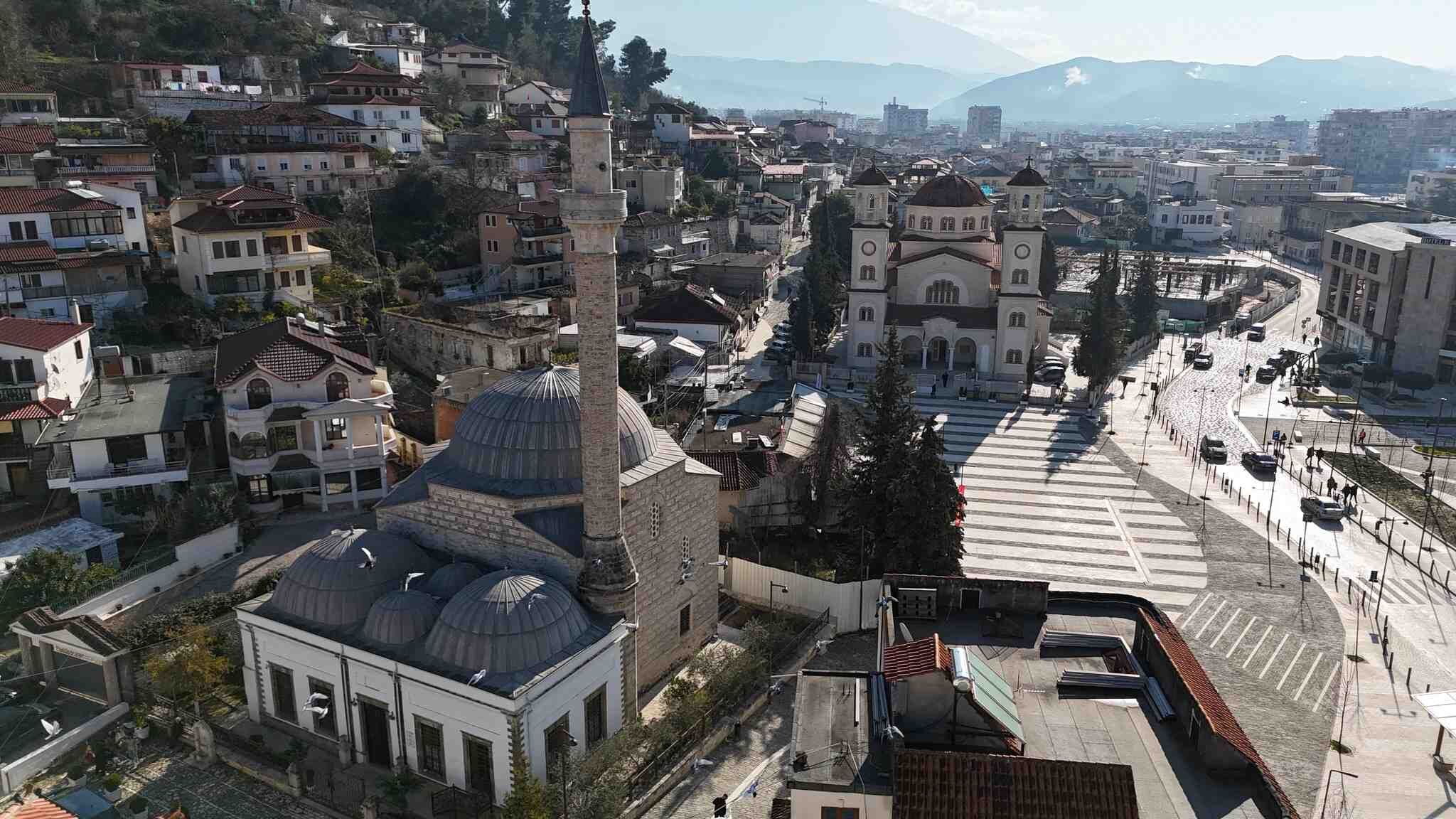
Le piazze europee si sono animate per dire basta all'overtourism, un fenomeno che sta snaturando le nostre città e la nostra cultura. In questo scenario, emerge una startup italiana, Unexpected Italy, che si propone di riscrivere le regole del viaggio, puntando su "luoghi inaspettati" e connessioni autentiche. Un approccio così innovativo da aver catturato l'attenzione dell'ONU e del The Guardian.
Elisabetta Faggiana, fondatrice e CEO di Unexpected Italy, non usa mezzi termini: "Le vere cause del turismo di massa? La pigrizia ed il guadagno facile." Sottolinea come non siano gesti dimostrativi a risolvere il problema, ma "soluzioni concrete, sistemiche e quotidiane".
Un Nuovo Modello di Viaggio per un'Italia Autentica
Mentre le proteste denunciano la trasformazione degli spazi urbani in meri alberghi, Unexpected Italy propone un'alternativa. L'obiettivo è redistribuire i flussi turistici e i benefici economici su tutto il territorio nazionale, tutelando le comunità locali e offrendo ai visitatori esperienze più genuine. "Non è solo una sfida digitale. È una sfida culturale," spiega Faggiana. La startup sta costruendo una "mappa d'Italia parallela", fatta di artigiani, ristoratori, produttori e host che ogni giorno resistono alla logica dei grandi numeri.
La lotta di Unexpected Italy è rivolta ai veri "colpevoli" dell'overtourism: la pigrizia del viaggiatore, che copia itinerari da Instagram o si affida a guide turistiche stereotipate; la comodità dei tour operator, che continuano a vendere le solite destinazioni sature; e il profitto facile di influencer e residenti che trasformano i centri storici in locande per turisti "mordi-e-fuggi".
Tecnologia al Servizio dell'Autenticità
Savio Losito, co-fondatore di Unexpected Italy, descrive il cuore della loro filosofia: una tecnologia costruita non sulla viralità, ma sulla profondità. "Non sull’hype, ma sull’autenticità. Non ci interessa portare folle davanti a una bottega. Ci interessa portarci le persone giuste." L'obiettivo ambizioso è che il viaggiatore arrivi da ospite e riparta da locale, collezionando non tappe, ma connessioni vere.
Elisabetta Faggiana, vicentina, e Savio Losito, barlettano, hanno intrapreso un viaggio da nomadi digitali attraverso l'Italia per realizzare il loro progetto traveltech. La loro app è una sorta di "Lonely Planet 3.0" geolocalizzata e targetizzata, che offre itinerari digitali personalizzabili e mette in contatto diretto con luoghi unici e persone del posto.
Ad oggi, hanno mappato 12 aree territoriali: Barletta, Firenze, Genova, Macerata, Matera, Milano, Modena, Roma, Torino, Valle d’Itria, Venezia e Vicenza. La loro app racchiude centinaia di luoghi "segreti", botteghe artigiane accoglienti, bed and breakfast e boutique hotel dall'atmosfera familiare, e ristoranti che fanno della qualità il loro mantra.
Riconoscimenti Internazionali e Impatto Reale
L'impegno di Unexpected Italy ha superato i confini nazionali. Il The Guardian ha dedicato due pagine al loro progetto, seguendo i fondatori fin dai tempi della loro prima iniziativa, "Unexpected London". Questa esposizione internazionale ha acceso il dibattito in Italia e ha portato decine di migliaia di persone a scaricare l'app.
La startup ha anche calcato palcoscenici prestigiosi come il Palazzo delle Nazioni dell'ONU, partecipando a forum e incontri per un discorso contro l'overtourism. Hanno preso parte a importanti eventi sul turismo sostenibile, ricevendo inviti a diversi TedX.
L'attualità dell'iniziativa è innegabile, considerando che l'overtourism è uno dei problemi più gravi del turismo italiano. Secondo i dati, la maggior parte dei turisti si concentra su una minima percentuale del territorio italiano, con città come Roma, Venezia, Firenze, Milano e Napoli tra le più colpite.
Un Manifesto per un Turismo Consapevole
"Crediamo in un turismo che faccia bene al pianeta e alle persone," affermano i fondatori di Unexpected Italy. L'appello è a un cambiamento radicale nel modo di viaggiare: con lentezza, consapevolezza e rispetto per le comunità locali. Ogni viaggio, nelle loro parole, può diventare un'occasione per valorizzare il patrimonio culturale, proteggere l'ambiente e sostenere le economie locali. Solo così il turismo si trasforma da consumo a incontro, scambio e rigenerazione.
Il Manifesto di Unexpected Italy sintetizza la loro visione, ponendo l'accento su principi fondamentali come la sostenibilità, il supporto alle imprese locali, il turismo lento e l'accessibilità, il tutto alimentato da un uso consapevole della tecnologia.
Unexpected Italy si posiziona come un faro di speranza per un turismo più etico e sostenibile. E tu, sei pronto a scoprire l'Italia più autentica e inaspettata?
Unexpected Italy: The Travel Revolution Fighting Overtourism
Town squares across Europe have been buzzing, shouting a collective "enough!" to overtourism. This phenomenon is rapidly changing our cities and cultures, often for the worse. But amidst this challenge, an Italian startup, Unexpected Italy, is stepping up to rewrite the rules of travel. Their focus? Unearthing "unexpected places" and fostering authentic connections. It's an approach so innovative that it's already caught the eye of the UN and The Guardian.
Elisabetta Faggiana, founder and CEO of Unexpected Italy, doesn't mince words: "The true causes of mass tourism? Laziness and easy money." She emphasizes that symbolic gestures aren't the answer. Instead, what's needed are "concrete, systemic, and daily solutions."
A New Travel Model for an Authentic Italy
While protests highlight the transformation of urban spaces into mere hotels, Unexpected Italy offers a refreshing alternative. Their goal is to redistribute tourist flows and economic benefits across the entire country, protecting local communities and giving visitors more genuine experiences. "It's not just a digital challenge. It's a cultural one," Faggiana explains. The startup is building a "parallel map of Italy," populated by artisans, restaurateurs, producers, and hosts who bravely resist the logic of mass numbers every day.
Unexpected Italy's fight targets the real "culprits" of overtourism: the traveler's laziness, copying Instagram itineraries or blindly trusting cliché guidebooks; the convenience of tour operators, who keep selling the same saturated destinations; and the easy profit for influencers and residents who turn historic centers into short-term rentals for "hit-and-run" tourists.
Technology Serving Authenticity
Savio Losito, co-founder of Unexpected Italy, describes the core of their philosophy: technology built not for virality, but for depth. "Not for hype, but for authenticity. We're not interested in bringing crowds to a small shop. We're interested in bringing the right people." Their ambitious goal is for travelers to arrive as guests and leave feeling like locals, collecting genuine connections rather than just ticking off sights.
Elisabetta Faggiana, from Vicenza, and Savio Losito, from Barletta, have spent the last two years as digital nomads, traveling across Italy to bring their travel tech project to life. Their app is like a "Lonely Planet 3.0," geotargeted and personalized, offering digital itineraries that connect users directly with unique places and local people.
To date, they've physically mapped 12 Italian areas: Barletta, Florence, Genoa, Macerata, Matera, Milan, Modena, Rome, Turin, Valle d’Itria, Venice, and Vicenza. Their app features hundreds of "secret" spots, welcoming artisan workshops, homey bed and breakfasts and boutique hotels, and restaurants dedicated to quality.
International Recognition and Real Impact
Unexpected Italy's commitment has resonated far beyond Italy's borders. The Guardian dedicated two pages to their project, following the founders since their first venture, "Unexpected London." This international exposure fueled the debate in Italy and led to tens of thousands of app downloads, especially in Faggiana's home region of Vicenza.
The startup has also graced prestigious stages like the UN Palace of Nations, participating in forums and meetings to speak out against overtourism. They've also been part of major sustainable tourism events and received invitations to various TedX talks.
The relevance of their initiative is undeniable, especially since overtourism is one of Italy's most pressing tourism issues. Data shows that the majority of tourists concentrate on a tiny percentage of Italian territory, with cities like Rome, Venice, Florence, Milan, and Naples bearing the brunt.
A Manifesto for Mindful Tourism
"We believe in tourism that benefits both the planet and people," state the founders of Unexpected Italy. They advocate for a radical shift in how we travel: with slowness, awareness, and respect for local communities. Every journey, in their words, can become an opportunity to celebrate cultural heritage, protect the environment, and support local economies. Only then can tourism transform from mere consumption into encounter, exchange, and regeneration.
The Unexpected Italy Manifesto encapsulates their vision, emphasizing core principles like sustainability, supporting local businesses, slow travel, and accessibility—all powered by the thoughtful use of technology.
Unexpected Italy stands as a beacon of hope for more ethical and sustainable tourism. So, are you ready to discover the most authentic and unexpected side of Italy?



